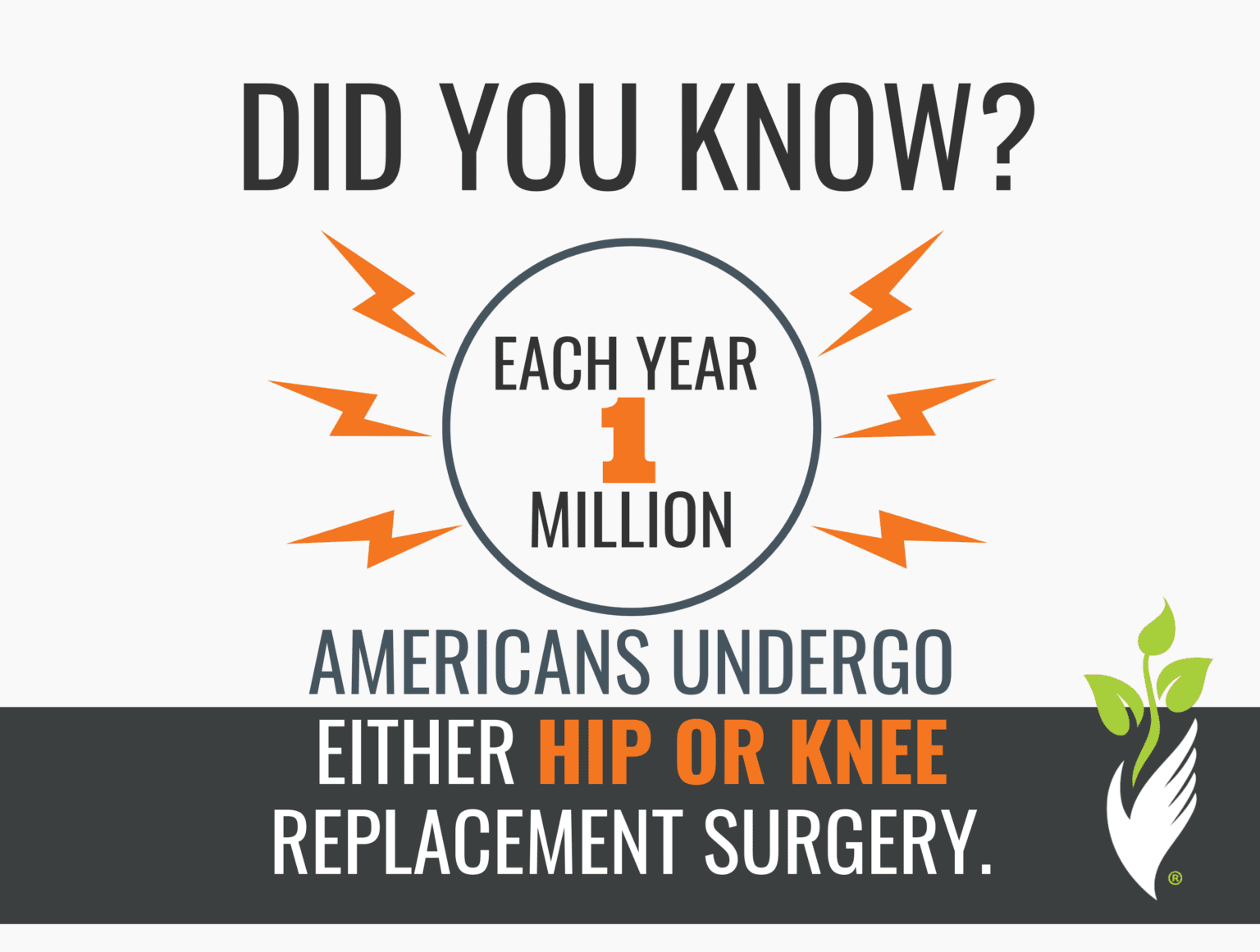Seniors and Surgery: Recovering from Joint Replacement Surgery
Published May 2, 2022 by R. Bradley Robinson, M.D. in Senior Health & Wellness

If you have suffered from years of arthritis and pain, you may find yourself under the lights of the operating room for joint replacement surgery…
Series Introduction: In this series, “Seniors and Surgery”, we are discussing important considerations for seniors who find themselves undergoing surgery. As we age, the risks associated with surgery increase. With this in mind, it is important to have a good understanding of appropriate post-operative care so that you can maximize efforts for a full recovery.
Did you know that each year, over 1 million Americans undergo either hip or knee replacement surgery? In fact, the number of patients receiving hip replacements more than doubled from 2000 to 2010! If you have suffered from years of arthritis and pain, you may find yourself under the lights of the operating room for joint replacement surgery. In addition to finding a trusted and experienced surgeon, the secret to a great outcome involves making sure you have the right expectations. Here, we will explore a few key pieces of information every senior should know before undergoing total hip or knee replacement.
How long will I stay in the hospital?
You can plan on at least 3-4 days in the hospital following joint replacement surgery. Your specific length of stay can be longer depending on other medical conditions that may need to be managed. Your surgeon will instruct you on the criteria that need to be met before discharge. Usually, this includes being able to walk with an assistance device (e.g. ‘walker’) and being able transfer to different positions on your own.
How much pain will I feel?
Joint replacement surgery is an invasive procedure and it is no secret that you will experience pain in the immediate post-operative period. With that said, your surgeon will take great lengths to reduce your pain as much as possible so that you can makes strides in the recovery process. It is now common practice to use multiple kinds of medications to decrease the pain via different mechanisms. If you are worried about the pain, talk to your surgeon before the surgery about his or her approach to pain relief. He or she can also give you the most accurate expectations for your particular procedure.
What limitations will I have after surgery?
When it comes to joint replacement procedures, the end goal is good healing at the site of surgery without any complications. To achieve this, your surgeon will instruct you about certain limitations or ‘precautions’ to follow in order to reduce the chance of complications. These may include:
- No driving for up to 4 weeks, sometimes longer.
- Position restrictions such as not crossing your legs or bending at the waist.
- No high impact activity such as running (it is recommended to refrain from running for life in order to preserve the joint).
The take home point is that joint replacement surgery should only be pursued once you’ve found a trusted surgeon and all of your questions have been answered. It is also important to have a strong support system during your time of recovery. Talk with your family and friends about their availability to help with household activities, as it may be several weeks before you are able to care for yourself independently. And if you find that you need some extra help, don’t hesitate to call your local Preferred Care at Home office to ask about how we can help with your post-surgery recovery. With the right help and the right expectations, you will put your best foot forward on the path to recovery.
If you have questions about senior home
care services or if you want to start care:
Related Posts

January 27, 2025
Is There a Food Allowance Card for Seniors?
Jody Guerrieri, RN.

January 27, 2025
What Causes Glassy Eyes in the Elderly?
Jody Guerrieri, RN.

January 27, 2025
What Age Is Considered a Senior Citizen?
Jody Guerrieri, RN.
Helping seniors age in place, with dignity & grace.